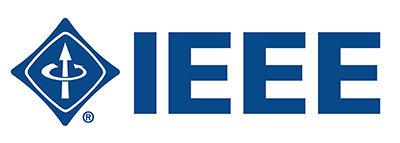Interviews
I. HOW TO TALK MONEY AND GET WHAT YOU WANT
The biggest mistake professionals make during interview sessions is resting on their professional laurels. While it is true that the hiring market is largely controlled by the job-seekers, not the companies, most companies are wary of stories/tall tales they have heard about hit-and-run contractors and want to know that you are genuinely interested in working for them. The biggest mistake you can make is to bring up the subject of what’s in it for you, in terms of pay, travel, or any benefits-related issue before you have sold the company on your services. The key is to win the company over first, then negotiate your needs using their desire to hire you as leverage.
The hiring market creates some unique and sensitive tensions during the interview process. In some cases, the applicant is going to enter at a higher salary level than the people who are interviewing them – a very tricky dynamic. To draw on one true-to-life scenario, if you are an professional used to extended vacations, you might want to be aware of the possibility that the hiring officials you are dealing with – especially if you are going through a human resources department – have probably worked years to achieve a benefits package/salary inferior to the type you already enjoy and want to equal or improve.
The key here is not to settle for less, but to be sensitive to the needs and concerns of the company until they are sold on your services. The best time to negotiate fine points in the benefits package, salary, or the 401K plan is AFTER you have had a good in-person interview, or at the very least after your technical skills and value to the company are both firmly established.
One more time for emphasis: the golden rule is to impress the company first, then talk about your specific financial concerns. It is also important to not make a big show during the interview of all the other companies you’ve interviewed with and the many offers you’ve received. As an professional, you are worth a lot, you are in control. The company knows it and so do you – no need to remind them.
The best way to impress is by researching each company you interview with. Try to get a feel for their particular needs and make it clear just how you will be able to fill them. Keep in mind that your job involves both technical and communication skills, and both will be evaluated during your interview. Especially if you are interviewing to be a consultant, your communication skills and ability to solve the human workflow problems that implementations create are important. For those of you who are H-1’s looking for U.S. positions, remember to communicate clearly and with the best English you’ve got. As a general rule, people talk too fast during interviews. Most positions involve client-relations; your abilities to communicate clearly are vital to your chances.
The most important and sensitive phase of the interview is the subject of salary and compensation. The classic rule is that the first person to name the price loses. In practice, this can be tricky. The company may be very determined to obtain your salary expectations.
Hiring officials may raise the question of salary early on, perhaps even in your first phone interview, to make sure that they can afford the serious resume they see in front of them. If you are an candidate, you may welcome this discussion of money – at least you will know for certain whether or not this company can meet your salary expectations – before you take a day off from work for the interview.
Thank you for contacting us. We are sensitive to the fact that undergoing a career search may be an unfamiliar process to you. Because of this fact, we have compiled some very valuable information for you; including resume tips, interviewing tips, and strategies to help you in your search for a new career opportunity.
This has been compiled to help you – the candidate – to successfully land a new position. Please take the time to read this.
- 10 Tips for Dealing with Recruiters
- Questions Recruiters Receive From Candidates
- Resume Do’s and Don’ts
- Candidate Interviewing Tips
- Interviews
- Important Interview Questions and Your Answers
- 10 Reasons for Not Accepting a Counter Offer
- Resume Design Tips & Example
- Beefing Up an Anemic Resume
- The Dangers of Resume Overkill
- Improve your Resume – In today’s competitive employment market, your resume has to stand out in order to get the attention of the decision maker and create a strong impression
- Top 10 Interview Blunders
- Resume Tips for Engineers Over 40
- Book – How to land a Job in a World of High Unemployment
For additional information on interviewing, and career search methods I highly recommend a book called: Knock em Dead and Knock em Dead Resumes, written by Martin Yate.







